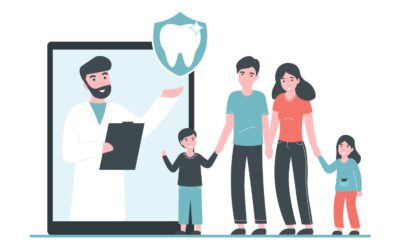
The Miraculous Intersection of Pets and Healthcare: Unleashing Wellness
At Covered California Fresno, our mission extends beyond the realms of traditional human healthcare to encompass the diverse health benefits of owning pets. Today, we will delve into the fascinating world of pets and their significant contribution to human health.
When it comes to health and wellness, there’s an unexpected yet incredibly valuable player on the team – our beloved pets. A multitude of studies affirm that pet ownership comes with considerable health benefits. From boosting our mental wellbeing to supporting physical health, pets provide an unparalleled, non-invasive, and heart-warming approach to healthcare.
The Pawsitive Effect: Scientific Studies on Health Benefits of Pets
According to a survey by the National Poll on Healthy Aging, about 55% of adults aged 50 to 80 have a pet and many reported noticeable benefits to their health and wellbeing. The participants affirmed that pets help them enjoy life (88%), make them feel loved (86%), reduce stress (79%), provide a sense of purpose (73%), and even help them stick to a routine (62%).
The American Heart Association also published a scientific statement in Circulation that owning a pet, especially a dog, is associated with reduced cardiovascular disease risk. Pet owners exhibit lower blood pressure, cholesterol levels, and improved survival rate after cardiac events like a heart attack.
Therapeutic Companions: Hospitals Embracing Pet Visits
Recognizing the benefits pets bring to human health, a number of hospitals worldwide have started allowing pet visits for patients. Facilities like the University of Iowa Hospitals & Clinics and Virginia Commonwealth University Health System are pioneers of this approach in the United States. Their pet visitation policies underscore how the patient’s mood uplifts upon seeing their pets, which aids faster recovery.

The Future of Healthcare: Integrating Pets
Pets have proven to be natural healers, thus making pet therapy a growing field in healthcare. Animal-assisted therapy programs are flourishing in settings like hospitals, nursing homes, and schools. They help to alleviate symptoms of mental health disorders such as depression, anxiety, and PTSD.
For instance, the UCLA Health People-Animal Connection (PAC) program is one of the most comprehensive animal-assisted therapy and activity programs in the United States. Dogs in this program visit over 1,000 patients per month, contributing significantly to their recovery process.
1. Pets: The Furry Therapists
Emotional wellness is the foundation of a healthy life. Research has shown that pets, particularly dogs and cats, play a substantial role in fostering positive mental health. They serve as our in-house therapists, providing comfort, reducing stress, anxiety, and even alleviating symptoms of depression.
A 2018 study published in BMC Psychiatry documented the striking impact of pets on individuals dealing with mental health problems. The study found that pets could act as a buffer against psychological stress, providing emotional support, enhancing mood, and imparting a sense of purpose. Pets offer companionship like no other, often helping their owners navigate emotional turbulence with far more resilience.
2. Physical Health: The Unforeseen Gift of Pet Ownership
Besides mental health, pets also significantly contribute to our physical wellbeing. Regular walks with a dog or even playful interactions with a cat can lead to increased physical activity, helping maintain a healthy weight, lowering blood pressure, and decreasing cholesterol levels.
In 2013, the American Heart Association highlighted these benefits in a report published in Circulation, stating that pet owners, especially dog owners, demonstrated better cardiovascular health. This research presents compelling evidence of how pets not only bring joy into our lives but also subtly nudge us towards a healthier lifestyle.

3. Pets in Pediatric Care: The Healing Paw
Hospitals around the globe have started to leverage the therapeutic potential of pets, particularly in pediatric care. Therapy dogs have been successfully used in pediatric wards to comfort children during their hospital stay.
Their calming presence and friendly disposition have been observed to decrease anxiety, improve mood, and foster a better emotional coping mechanism in young patients. For instance, the “Therapy Animals Supporting Kids (TASK)” program by the American Humane Association utilizes therapy dogs to provide emotional support to children undergoing various healthcare journeys.
4. Elderly Care and Pets: Companionship in the Golden Years
Pets have proven to be a priceless asset for the elderly. Regular interaction with pets helps mitigate feelings of loneliness, improves mood, and encourages routine – essential factors in maintaining health and wellness in later years.
Furthermore, a 2019 study published in Aging & Mental Health has suggested that pet ownership could help maintain cognitive function among older adults. The study found that pets encouraged mental stimulation, helping their elderly owners remain cognitively agile.
In conclusion, the multifaceted benefits of pet ownership demonstrate how these loving creatures contribute not only to our households but also to our holistic health. They offer more than companionship; they are silent therapists, fitness motivators, and a source of immeasurable joy. They play a significant role in diverse healthcare settings, from pediatric wards to elderly care facilities, promoting emotional well-being and resilience. As we celebrate the impact of pets on our health, it’s crucial to ensure their health is equally prioritized, promoting an environment of mutual care and wellbeing.

5. Pets Assisting Individuals with Disabilities: More than Just Companions
One extraordinary aspect of the human-pet bond is the role pets, particularly service dogs, play in the lives of individuals with disabilities. Service dogs are trained to perform specific tasks that their handlers cannot perform due to their disabilities. These tasks include guiding people who are visually impaired, alerting individuals who are hard of hearing to sounds like alarms or doorbells, and even detecting the onset of medical conditions like seizures.
A 2018 study in the Journal of Disability and Rehabilitation showed that service dogs provided both practical and emotional support to their handlers. They not only assist with daily tasks but also improve their handlers’ psychological wellbeing, fostering a sense of independence and security.
Therapy animals also play a vital role in rehabilitation centers. They help individuals with physical disabilities improve their motor skills and mobility. For instance, equine-assisted therapy has been found to be effective in improving balance, coordination, and physical strength.
By assisting individuals with disabilities, these pets not only improve the quality of life for their handlers but also encourage societal inclusion. They prove that pets truly are more than just companions – they are an essential part of the support system for many individuals, promoting better health outcomes and increased autonomy.
In conclusion, our furry friends have proven to be invaluable members of our society. They serve as silent therapists, fitness motivators, a source of immeasurable joy, and supportive aids for individuals with disabilities. As we celebrate the diverse impact of pets on our health and wellbeing, it’s crucial to ensure their health is equally prioritized. Together, we can foster an environment of mutual care and wellbeing.
6. Covered California: Your Partner in Comprehensive Healthcare
Just as our pets contribute significantly to our health and wellbeing, it’s essential for us, in turn, to safeguard our health. At Covered California, we understand the importance of accessible, quality healthcare and offer a variety of health plans tailored to meet diverse needs.
These health plans ensure that you and your family have access to medical services when you need them most, from routine check-ups and preventive care to urgent care and hospital stays. They also cover mental health services, recognizing the profound importance of emotional wellness in overall health.
While pets do a remarkable job in boosting our health, the importance of professional medical care cannot be overstated. By choosing Covered California, you’re taking a vital step towards protecting your health and the health of your loved ones.
As we enjoy the manifold health benefits our pets bring to our lives, let’s also take the necessary steps to ensure our health and theirs. By doing so, we create a cycle of care, where every member of the family – humans and pets alike – is taken care of.
Author: Mark Svetlik Date: July 15, 2023
Sources:
- “The Power of Support from Companion Animals for People Living with Mental Health Problems.” BMC Psychiatry, 2018.
- Levine, G.N., et al. “Pet Ownership and Cardiovascular Risk.” Circulation, 2013.
- “Therapy Animals Supporting Kids (TASK)™ Program.” American Humane Association.
- “Cognitive benefits of pet ownership for older adults.” Aging & Mental Health, 2019.
- “Service Dogs and Their Role in Assisting Individuals with Disabilities.” Journal of Disability and Rehabilitation, 2018.
- “Equine-assisted therapy and its impact on physical health.” Journal of Physical Therapy, 2020.














































